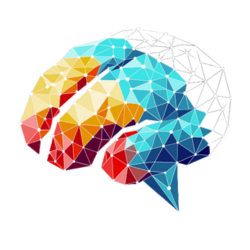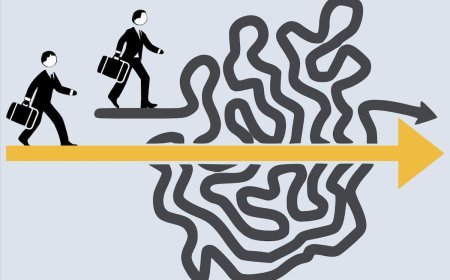Intrapersonal Intelligence (The Insightful ones)
While some intelligences focus outward, on the world or on other people, Intrapersonal Intelligence turns inward. This profound cognitive strength, identified by Howard Gardner, is the capacity for self-understanding – to know oneself, including one's desires, fears, strengths, and weaknesses, and to use this knowledge to regulate one's own life effectively.

The Architect of Self
At its core, Intrapersonal Intelligence is about metacognition – thinking about one's own thinking. It involves a sophisticated understanding of one's own emotions, motivations, values, and goals. Individuals strong in this area are highly introspective; they spend time reflecting on their experiences, analyzing their feelings, and understanding what drives them. This deep self-awareness allows them to set realistic goals, make informed decisions aligned with their values, and effectively manage their own emotional states.
This intelligence manifests in various ways:
- Self-Awareness: A clear understanding of one's own emotional landscape, including triggers, strengths, and areas for growth.
- Self-Regulation: The ability to manage impulses, set personal goals, and maintain self-discipline.
- Metacognition: The capacity to analyze one's own thought processes, learning styles, and problem-solving strategies.
- Personal Motivation: An intrinsic drive to pursue personal goals and a clear understanding of what truly matters to them.
- Emotional Intelligence (Internal Aspect): While interpersonal intelligence focuses on others' emotions, intrapersonal intelligence involves a deep understanding and management of one's own emotions.
For those with high Intrapersonal Intelligence, their inner world is a rich landscape of continuous discovery. They are often thoughtful, independent, and resilient, drawing on their self-knowledge to navigate life's challenges. Their internal dialogue is often sophisticated, and their wordings when expressing personal beliefs or insights are typically well-considered and articulate.
Characteristics of the Self-Smart Individual
Individuals with strong Intrapersonal Intelligence often display several identifiable traits:
- Highly Self-Aware: They possess a realistic understanding of their own strengths and limitations.
- Independent and Autonomous: They often prefer to work independently and are comfortable with solitude.
- Goal-Oriented: They have a clear sense of purpose and are motivated by their internal values and aspirations.
- Reflective: They spend time thinking deeply about their experiences, feelings, and beliefs.
- Emotionally Intelligent: They can identify, understand, and manage their own emotions effectively.
- Intuitive: They often trust their gut feelings and inner voice in decision-making, as it's deeply connected to their self-knowledge.
- Resilient: Their strong self-understanding helps them bounce back from setbacks and adapt to change.
- Value-Driven: Their decisions and actions are deeply rooted in their personal values and convictions, often expressed through very deliberate wordings.
Professions Where Intrapersonal Intelligence Shines
While less outwardly focused than other intelligences, Intrapersonal Intelligence is crucial for success and fulfillment in many fields, particularly those requiring deep personal insight, autonomy, or self-management:
- Philosophers/Theologians: These professions fundamentally involve deep introspection, critical examination of beliefs, and the development of personal worldviews.
- Writers/Artists: Many creative endeavors require solitude, self-reflection, and the ability to draw from one's own experiences and emotions. Their wordings can be incredibly revealing of their inner landscape.
- Entrepreneurs: Starting and running a business demands immense self-motivation, resilience, and a clear vision often derived from strong personal conviction.
- Psychologists/Therapists: While requiring strong interpersonal skills, a therapist's effectiveness also relies on deep self-awareness to maintain objectivity and prevent burnout.
- Spiritual Leaders/Gurus: These roles involve guiding others on personal journeys, which necessitates profound self-understanding and a strong internal moral compass.
- Researchers/Academics: Many research fields require significant independent work, self-discipline, and the ability to critically evaluate one's own ideas and hypotheses.
- Life Coaches/Mentors: They draw on their own understanding of personal development and goal-setting to guide others.
- Any profession requiring high degrees of self-motivation and independent work: This could include freelancers, remote workers, or individuals in highly specialized roles.
Cultivating the Inner World
Even for those who don't naturally lean towards introspection, Intrapersonal Intelligence can be consciously developed and strengthened, leading to greater personal well-being and effectiveness:
- Journaling: Regularly writing down thoughts, feelings, and experiences helps to process emotions and gain clarity.
- Mindfulness and Meditation: Practices that cultivate present moment awareness and self-observation can deepen understanding of inner states.
- Self-Reflection: Regularly setting aside time to think about one's actions, decisions, and emotions, asking "why?" and "what did I learn?"
- Setting Personal Goals: Defining what truly matters and aligning actions with those values.
- Seeking Feedback: While this involves others, processing and integrating feedback about oneself contributes to self-awareness.
- Understanding Learning Styles: Recognizing how one learns best and adapting study or work methods accordingly.
- Exploring Values: Identifying core personal values and using them as a guide for decision-making, often articulated through precise wordings when communicating these values.
- Spending Time Alone: Creating opportunities for quiet contemplation and solitude without distractions.
Intrapersonal intelligence is not about being anti-social; rather, it's the foundation for authentic social engagement. A strong sense of self allows individuals to relate to others more genuinely and contribute to the world from a place of clear purpose. In a busy, outward-facing world, cultivating this inner strength, with its unique set of wordings and internal dialogues, is more vital than ever for personal growth and fulfillment.
What's Your Reaction?
 Like
0
Like
0
 Dislike
0
Dislike
0
 Love
0
Love
0
 Funny
0
Funny
0
 Angry
0
Angry
0
 Sad
0
Sad
0
 Wow
0
Wow
0





















